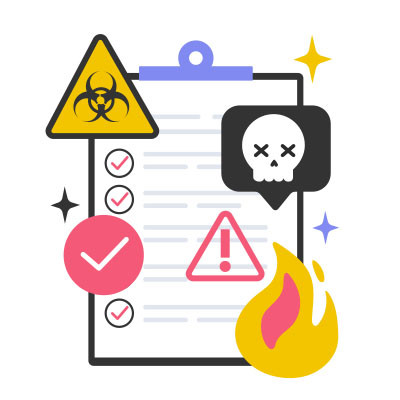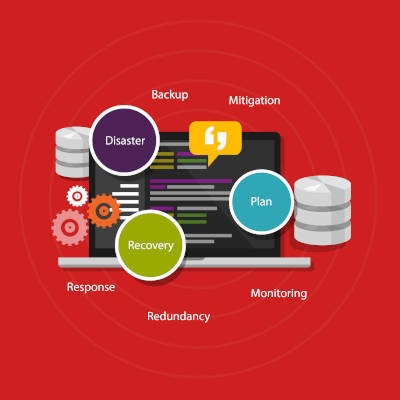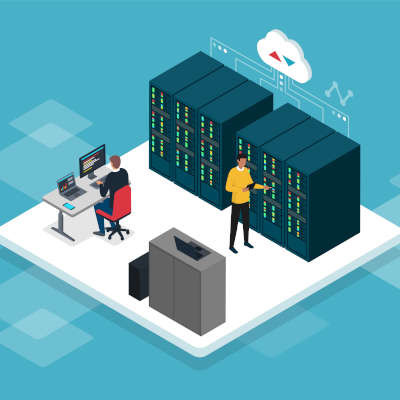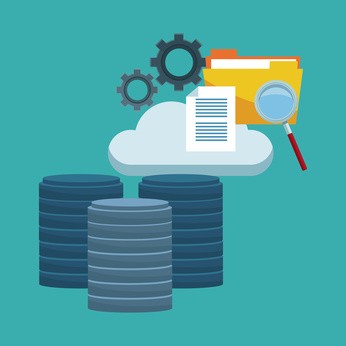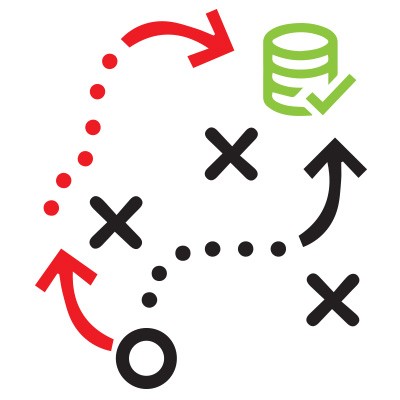Business technology is known to be remarkably finicky, particularly if you do not have the requisite knowledge to manage and maintain it. After all, there is a reason why you hire an IT department or a managed service provider to handle this role. What happens if your technology fails, though? Do you have a plan in place? What does a plan like this even look like, anyway? Let’s dig into the details.
We Define IT Consulting
In an era where businesses rely heavily on data and technology, the need for comprehensive disaster recovery solutions has never been more critical. The stakes are high when it comes to safeguarding your company's digital assets and ensuring business continuity in the face of unforeseen disasters. This is where Disaster Recovery as a Service (DRaaS) comes into play.
With technology serving such an indispensable role in modern business the looming threat of disaster is one that needs to be considered. With so many consequences on the line, it’s important that your business is prepared to deal with these disasters effectively and efficiently. Let’s run through some tips for properly preparing for your potential disaster recovery needs.
No one can tell when a disaster is going to hit your business or what form that disaster is going to take. The cause could be a storm, human error, or some freak occurrence that nobody could have seen coming. In order to get back up and running after one of these incidents a company needs to have a strong business continuity strategy. An essential part of this strategy is knowing how to recover data depending on the way it’s lost. Getting data back and working for your company is the only way to stave off ruin, so let’s look at data recovery strategies that can literally save your business.
Data backup is a must-have for every business, but it isn’t enough to just copy your data. You will need to have a data recovery strategy in place to ensure that your business can effectively respond after a data loss incident. Today, we’ll take a look at why considering your recovery strategy early is important, and how to prioritize it with everything else going on with your business.
As most people know, data backup is important, and when things go wrong you’ll be glad your business has it. The thing is, it’s not enough to have a copy of your data when you need to restore it, you’ll also need a recovery strategy. This is because getting your data back working for you is arguably as important as any other part of the process. Today, we’ll take a look at data recovery strategies that will get your business back on track after a disaster.
If there is one thing that you could take away from our blog it is that data backup is an integral part of any business continuity strategy. Unfortunately, there are so many different parts to it that it’s not surprising some data could slip through the cracks if not maintained properly. If you’re not actively taking measures to keep disasters from derailing your business’ progress, you stand to lose more than some data. Let’s take a look at some of the critical parts of a data backup and disaster recovery process and why it is essential to give them a test regularly.
If there is one thing we tell every would-be client of ours, it is that it is essential that they secure their data with a comprehensive backup and recovery system. This is not to make our lives easier or to sell products, it is a fact, and said strictly for their own benefit. Even the smallest organizations need protection against situations that could put all their staff’s hard work in jeopardy. Let’s take a look at why backup is so important.
The late American author Kurt Vonnegut once wrote, “New knowledge is the most valuable commodity on earth. The more truth we have to work with, the richer we become.” Written in the 20th century, it has been put in practice by 21st century businesses. As the Internet has grown, the amount of companies expanded, and the amount of data that those companies collect has grown exponentially, especially now that there is a market for such data.
Today, many of the largest and most lucrative companies in the world, Google, Apple, AT&T, Amazon, Verizon, Facebook and Microsoft are all, more than manufacturers of computer-based goods and services, data brokers. These data brokers create services that they then sell to advertisers that allow them to target you based on the information these companies have of you, which can accurately tell how and what to sell you.
Since nearly everyone has a near-ubiquitously-connected experience there is a lot of data collected, bought, and sold every year and it’s big business. Facebook, a company whose main revenue stream is from selling advertising, made a net profit of nearly $16 billion in 2017. This tells us that if you have people’s data, you have people’s hopes, fears, and dreams, which means you can pretty easily get someone to pay you for access to that information.
For small businesses it’s much less lucrative. In fact, all the data your organization needs to keep, is probably necessary to simply do business, not to sell to advertisers. Facebook voluntarily gets a lot of personal information from every one of their users, as where the typical small business often has to strategize to just get a name and a phone number. The information that is sensitive (mostly customer information that you collect) has a lot of value to the people looking to steal it. So while you aren’t making billions of dollars selling consumer profiles, it is still a mightily important part of doing business, and needs to be secured.
Is Data a Commodity?
Technically speaking, it isn’t. Since a commodity’s value is based namely on its scarcity and the amount of capital that needs to be put up to create it, in both resources and labor, the data that is being purchased isn’t really a commodity. In lieu of the dissolution of the U.S. Net Neutrality laws, this has created the argument in the U.S. that since now it’s up to the telecommunication companies how they want to manage (or more accurately bill) data consumption, that they would throttle and tier service, something that isn’t possible with a true commodity, where there are laws prohibiting those types of practices.
As the cloud is being utilized by more individuals and organizations to meet their computing needs, more very important data is hosted outside of local computer networks. As a result, people utilize cloud storage for their backup and recovery strategies. In fact, it has become the primary use of cloud-hosted platforms, but just how does backup and recovery from these collaborative cloud-based platforms work?
Data backup tends to carry with it the association that your business could end at any moment, and while this is an important reason to implement data backup, there are countless others to consider as well. You might find that they are just as important to your organization as saving it from a devastating data loss disaster.
